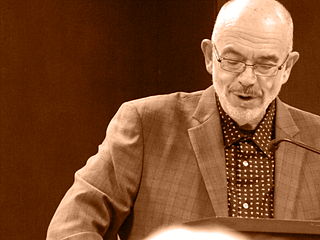A Quote by Susie Orbach
Consumer society tantalises us. We then try within ourselves to control the needs that are being constantly stimulated.
Related Quotes
We are estranged from our own deeper physiology because we are no longer in contact with nature. Instead, we are controlling nature with air pollution, heating, technology. But you have to know you have a depth within yourself which needs to be stimulated. If it doesn't get stimulated it becomes weaker, like a muscle that's not being used any more.
The intensive use of photographs by mass media lays ever fresh responsibilities upon the photographer. We have to acknowledge the existence of a chasm between the economic needs of our consumer society and the requirements of those who bear witness to this epoch. This affects us all, particularly the younger generations of photographers. We must take greater care than ever not to allow ourselves to be separated from the real world and from humanity.
We think that by protecting ourselves from suffering, we are being kind to ourselves. The truth is we only become more fearful, more hardened and more alienated. We experience ourselves as being separate from the whole. This separateness becomes like a prison for us - a prison that restricts us to our personal hopes and fears, and to caring only for the people nearest to us. Curiously enough, if we primarily try to shield ourselves from discomfort, we suffer. Yet, when we don't close off, when we let our hearts break, we discover our kinship with all beings.
God is good. He is eager to forgive. He wants us to perfect ourselves and maintain control of ourselves. He does not want Satan and others to control our lives. We must learn that keeping our Heavenly Father's commandments represents the only path to total control of ourselves, the only way to find joy, truth, and fulfillment in this life and in eternity.
Our Christian destiny is, in fact, a great one: but we cannot achieve greatness unless we lose all interest in being great. For our own idea of greatness is illusory, and if we pay too much attention to it we will be lured out of the peace and stability of the being God gave us, and seek to live in a myth we have created for ourselves. And when we are truly ourselves we lose most of the futile self-consciousness that keeps us constantly comparing ourselves with others in order to see how big we are.
Throughout their lives, women try to pummel their bodies into some phantom ideal shape that exists only with a lot of airbrushing. ... I don't blame men for this. Men seem to go for us no matter what size and shape we are. I blame capitalism. No, really. The consumer must constantly be in a state of anxious low self-esteem so that she will constantly buy lipsticks and girdles to make her feel cuter.
In the consumer culture of marriage, commitments last as long as the other person is meeting our needs. We still believe in commitment, because we know that committed relationships are good for us, but powerful voices coming from inside and outside tell us that we are suckers if we settle for less than we think we need and deserve in our marriage. Most baby boomers and their offspring carry in our heads the internalized voice of the consumer culture-to encourage us to stop working so hard or to get out of a marriage that is not meeting our current emotional needs.






































